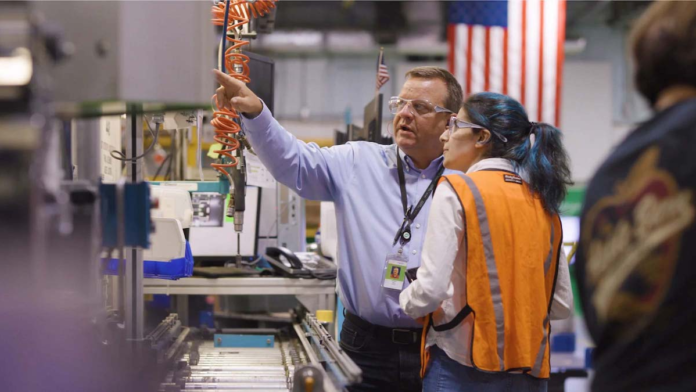By Aamir Paul
Digital transformation is reshaping business processes by introducing more data, faster operations, and enhanced safety and efficiency across all sectors.
Despite the potential benefits of automation and digitalization, the industrial sector lags behind due to outdated fears and misconceptions. Industrial automation focuses on utilizing control systems, like computers or technology, to improve safety and efficiency by automating repetitive or hazardous tasks, not replacing workers.
To stay competitive, industrial firms need to embrace automation and digitalization. Many industries have already started their digital transformation journey, but they often face challenges during the initial stages of implementing automation projects.
Partnering with experts in digital transformation can help address these challenges, improve planning, and enhance overall efficiency. Collaborations can lead to innovative solutions that meet changing market demands.
Meeting the Digital Demand
Industrial companies must leverage digital technologies to meet evolving customer expectations for customized products and faster deliveries. Adopting digital infrastructure can help identify inefficiencies and optimize processes, leading to cost savings and improved sustainability.
Data insights from digital automation empower companies to reduce waste, save money, and make informed decisions quickly, without sacrificing quality. Automation also supports reshoring and nearshoring initiatives to enhance competitiveness and scalability for U.S. manufacturers.
Industries of the Future
To thrive in a digitalized era, industrial companies need skills in data science, AI, cybersecurity, and cloud computing. Sustainable practices and renewable energy are attracting environmentally conscious professionals to the industry, addressing the need for a skilled workforce.
However, with many manufacturing jobs unfilled in the U.S., industrial automation becomes crucial for attracting new talent and improving operational efficiency. Bridging the skills gap between current and future workers is essential for successful integration of automation into industrial operations.
Companies must create a culture that supports automation and innovation through training and development opportunities to drive the adoption of industrial automation. Embracing automation not only attracts new talent but also fosters economic and social development through innovative solutions.
Learn more about how to transform your operations by partnering with Schneider Electric.




